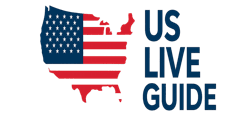Colorado, with its booming population, thriving industries, and unique geographical landscape, presents both opportunities and challenges when it comes to insurance law and risk management. Whether you are a homeowner in Denver, a business owner in Colorado Springs, or a rancher in rural areas, understanding the state’s insurance requirements and risk factors is essential to protecting your assets.
1. Overview of Colorado Insurance Laws
Colorado operates under specific insurance regulations that aim to protect consumers while ensuring fair practices for providers. The state requires:
-
Mandatory Auto Insurance: Drivers must carry minimum liability coverage, including bodily injury and property damage. Uninsured/underinsured motorist coverage is also commonly recommended.
-
Health Insurance Compliance: Colorado participates in the federal Affordable Care Act marketplace but also has unique state-based rules that ensure broader coverage.
-
Workers’ Compensation: Employers are legally required to carry workers’ comp insurance to protect employees injured on the job.
2. Business Risk Management in Colorado
Colorado’s economy is diverse, covering industries like tourism, agriculture, energy, and technology. Each sector faces distinct risks:
-
Tourism & Ski Resorts: Liability insurance is critical for businesses operating in high-risk recreational environments.
-
Agriculture & Ranching: Crop insurance and livestock coverage are essential against unpredictable weather and disease outbreaks.
-
Energy Sector: Companies in oil, gas, and renewable energy must manage environmental liability and regulatory compliance risks.
3. Natural Disaster Risks in Colorado
The state’s geography creates a heightened need for specialized insurance:
-
Wildfires: Increasingly frequent in mountainous regions, requiring homeowners to secure fire-specific policies.
-
Flooding & Snowmelt: Many properties near rivers and mountain areas face seasonal flood risks not covered by standard homeowners’ insurance.
-
Winter Storms: Heavy snow and ice damage can severely impact infrastructure and businesses.
4. Homeowners and Renters Insurance Considerations
Colorado’s housing market is expanding rapidly, especially in cities like Denver and Boulder. For residents:
-
Homeowners must evaluate policies that include wildfire and hail damage.
-
Renters should carry liability and personal property insurance to protect belongings.
-
Premiums vary widely depending on location, with mountain and rural homes generally costing more to insure due to wildfire exposure.
5. Legal Disputes and Insurance Claims
Disputes often arise between policyholders and insurers regarding coverage limits, denied claims, or delayed settlements. Colorado law provides mechanisms for policyholders to challenge unfair practices, often requiring legal counsel. Businesses in particular must pay close attention to liability exposure and contractual insurance obligations.
6. Future Trends in Colorado Risk Management
As Colorado continues to grow, several trends are emerging:
-
Rising insurance premiums due to climate change and natural disaster risks.
-
Expansion of digital and cyber insurance coverage as the state’s tech sector grows.
-
Increasing need for sustainable and green insurance policies in line with Colorado’s environmental initiatives.
